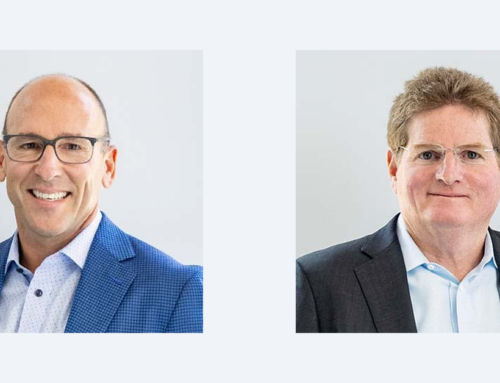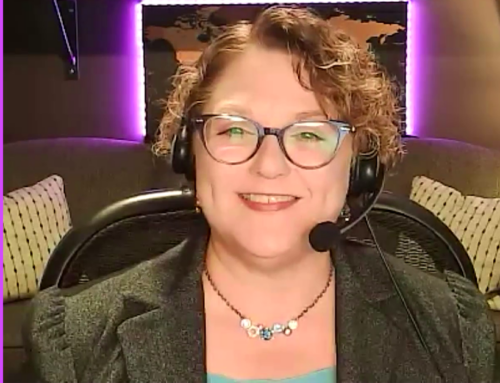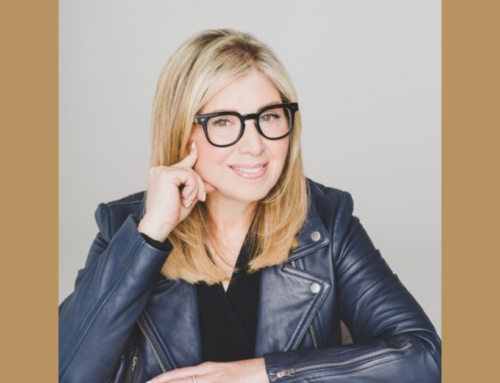“I just don’t think most of the current generation of folks will ever work hard again. Everyone has a side hustle. Everyone’s working 20 hours a week. You know, there’s a Wall Street Journal article this week that says workers are the happiest they’ve ever been. It’s because they work the least. They don’t work at home.”
— Entrepreneur Jason Lemkin on a podcast with Harry Stebbings
In a recent coaching call with one of my financial advisor clients, she mentioned a conversation she had with one of her clients. “Mike” was near retirement age, had plenty of money to retire comfortably, yet was wondering if he had “enough” because in his role as a fundraiser, he came in contact with people worth many millions who had multiple homes.
Mike felt his “single” home by comparison was underwhelming and his retirement nest egg, while plentiful, was no match for his donor clients. Had he somehow failed in life to amass “enough” wealth?
At some level, I think we can all relate to this feeling of “not enough” and can get trapped in the comparison game.
In fact, our entire economy is built around the idea that you can never have enough. And social media has 10xed the problem with its glamorous show of faux “look at my wonderful life.”
As an advisor, it’s a bit of a catch-22. On the one hand, your job is to help clients grow and protect their wealth, while at the same time, you have to caution them from getting so caught up in “their number” that they lose sight of “their life.”
This conversation around “enough” is not new—it’s been going on for thousands of years!
While there are many layers to the “enough” conversation, what I’d like to do today is share some thoughts on how some of history’s big thinkers thought about this question and see what we can learn from them and apply to today’s world.
Let’s start by going back about 2,500 years to see what Lao Tzu had to say. And I’ll follow that with comments from Adam Smith, Henry David Thoreau, Jacob Needleman, Lynne Twist, and Mark C. Taylor.
Lao Tzu
Around 400 BC (or maybe it was 600 BC, nobody really knows), Lao Tzu wrote the Tao Te Ching. This short, pithy “book” is a profound exploration of the nature of existence, the structure of the cosmos, and the path to living a harmonious and meaningful life. It’s considered one of the world’s great philosophical and spiritual classics.
And guess what? It talks about “enough” and contentment.
Here are three quotes from the well-respected Stephen Mitchell translation of the Tao Te Ching.
“If you realize that you have enough, you are truly rich.”
“If you look to others for fulfillment, you will never truly be fulfilled.
If your happiness depends on money, you will never be happy with yourself.
Be content with what you have; rejoice in the way things are.
When you realize there is nothing lacking, the whole world belongs to you.”“Chase after money and security
and your heart will never unclench.”
I’d say Lao Tzu sounds pretty modern!
Adam Smith
More recently, Adam Smith, widely known for his book, “The Wealth of Nations,” discussed the moral dimensions of economic life.
In his 1759 book “The Theory of Moral Sentiments,” Smith delved into the concept of sympathy, which he defined as an ability to share another person’s feelings to emotionally connect with them. It’s similar to what we now call empathy.
Smith proposed that our ability to empathize with others forms the basis of moral judgment.
As it relates to “How much money is enough?” Smith’s philosophy suggests that it’s not the wealth itself that we crave, but the happiness, comfort, and social approval we believe it will bring us.
However, Smith warned against the danger of equating wealth with virtue or happiness. He observed that wealth often fails to deliver the happiness people expect it to bring, and pursuing wealth could lead us away from virtue. Smith believed that one’s sense of self-worth should not depend on material possessions but rather on the moral virtues they uphold, such as justice, prudence, and beneficence.
It’s not a stretch to suggest that Smith would have advised us to consider not just how much money we amass, but how we use it, and how it aligns with our moral sentiments. For Smith, having “enough” money is about securing a comfortable life, but not at the expense of our virtues or our ability to sympathize with others.
I can’t argue with Smith’s insights, but society, with its emphasis on consumerism and comparisonism (I just made up that word), makes it rather difficult to put virtue and sympathy ahead of our manufactured desire to keep up with the Joneses.
Henry David Thoreau
About 100 years after Smith, in the mid-1850s, Henry David Thoreau chimed in with his “Walden” treatise on the virtue (there’s that word again) of simple living in natural surroundings.
We’re all familiar with the scarcity versus abundance concept that has been floating around for years. At the heart of our desire to accumulate more is the deep-seated fear of not having (or not being) enough or not having our “fair share” of a pie that may or may not be fixed.
It’s a fear not just of material scarcity, but also of being ‘less than’ in a world that constantly encourages ‘more than.’
Thoreau challenged this fear by embracing simplicity. He advocated for meeting “only the simplest and most basic needs of life” and realizing that true abundance comes not from hoarding but from recognizing and appreciating the fundamental joys of life.
I think we all know people who have plenty of money but they still cling to it and don’t spend it because they worry, “What if X happens? I don’t want to have to rely on the government or my children to support me.”
Again, simplicity is a great concept but most forces in society are aligned against simplicity and toward consumption, particularly the conspicuous kind.
Jacob Needleman
Philosopher Jacob Needleman’s seminal work “Money and the Meaning of Life” came out in 1991 and explores the deeply-rooted connection between our understanding of money and our search for meaning in life.
Needleman views money not merely as a material means but as a mirror reflecting our values, our desires, and our understanding of ourselves and the world.
In terms of “How much money is enough?” Needleman suggests that may be the wrong question. How much is not a number.
The problem, as he sees it, lies in our misunderstanding of money. We often assign to money a power it doesn’t inherently possess – the power to provide happiness, security, and worth. This misunderstanding leads us to the relentless pursuit of wealth, often at the expense of our emotional and spiritual wellbeing.
Needleman proposes that money, in its true essence, is a neutral force. It is not intrinsically good or evil. Instead, it’s our attitude towards money, our understanding of its role and purpose, and our use of it, that gives it moral and emotional weight.
Drawing from various spiritual and philosophical traditions, Needleman suggests that we must go through a process of inner transformation to correct our misunderstanding of money. We need to reflect deeply on our desires, fears, and beliefs associated with money. This reflection should lead us to the understanding that money is a tool, a means to fulfill our needs, and not an end in itself.
Practically, Needleman suggests that our relationship with money can only be healthy if we understand our true needs. Often, we confuse our wants with our needs, leading us to the constant pursuit of more. Needleman argues that most of our true needs are not material but psychological and spiritual. Hence, our pursuit of money should be balanced with our pursuit of inner growth and spiritual understanding.
Needleman’s work was influential in providing a framework for the early pioneers of the life planning movement. In fact, he spoke at one of the earliest Nazrudin Project meetings in San Diego in 1995.
Lynne Twist
Global visionary and author Lynne Twist burst onto the scene in 2003 with her amazing book “The Soul of Money.” I had the pleasure of spending an hour with her in late 2022 talking about transforming your relationship with money and life and it turned out to be one of my all-time favorite podcasts.
Her book has been chipping away at me since I first read it in the early 2000s. It helped me move from thinking about money as a stock (as in the systems thinking definition of stock, i.e. an amount of something) to thinking of money as a flow, as something that moves to me and through me.
So rather than focusing on the accumulation of money, of increasing my “stock” of it, I now view money like the current of a river. It flows toward me when I earn it. It flows away from me when I spend it or give it away. And this flow, this movement is a purifier. It ensures that my “stock” of money doesn’t just sit there and get moldy earning interest or fluctuating with the stock market.
Now, I still save money. But my mindset toward spending it has completely shifted. Rather than grimacing when I spend down my “stock,” I now view it as part of this flowing river. Money comes in. Money goes out. And I have this deep knowing that there will always be “enough” for whatever I “need.”
The above may sound a bit woo woo but it’s helped me reframe how I think about earning, saving, and spending.
Twist expressed it well in this passage from her book.
We each have the choice in any setting to step back and let go of the mindset of scarcity. Once we let go of scarcity, we discover the surprising proof of sufficiency. By sufficiency I don’t mean a quantity of anything. Sufficiency isn’t two steps up from poverty, or one step short of abundance. It isn’t a measure of barely enough or more than enough. Sufficiency isn’t an amount at all. It is an experience, a context we generate, a declaration, a knowing that there is enough and that we are enough.
Sufficiency resides inside each of us and we can call it forward. It is a consciousness and intentional choosing of the way we think about our circumstances. In our relationship with money, it is using money in a way that expresses our integrity, using it in a way that expresses value rather than determines value.
Sufficiency is not a message about simplicity or about cutting back or lowering expectations. Sufficiency doesn’t mean we shouldn’t strive or aspire. Sufficiency is an act of generating and distinguishing, making known to ourselves the power and presence of our existing resources and our inner resources. Sufficiency is a context we bring forth from within that reminds us that if we look around us and within ourselves, we will find what we need, there is always enough.
When we live in the context of sufficiency, we find a natural freedom and integrity. We engage in life from a sense of our own wholeness rather than a desperate longing to be complete. We feel naturally called to share the resources that flow through our lives, our time, our money, our wisdom, our energy, at whatever level those resources flow to serve our highest commitments. In the context of sufficiency, and the flow of resources to and through and from us, our soul and money interest merge to create a rich, satisfying, and meaningful life.
Twist’s message is slightly different than Thoreau’s. Thoreau advocated for simplicity, hence his bare minimum existence at Walden Pond. Twist says sufficiency isn’t necessarily about simplicity. It’s more about the context and mindset we bring to our resources and an inner knowing that there will always be “enough.” And there will always be enough because we will either find a way or make a way to sustain us.
Further, she describes the importance of where we place our attention.
“When you let go of trying to get more of what you don’t really need, it frees up oceans of energy to make a difference with what you have. When you make a difference with what you have, it expands.”
I want to be clear that Twist clearly understands that there are people in the world who literally do not have enough. As she said to me:
There are places where there’s not enough food, that’s real. There’s places where there aren’t enough jobs. There’s people who don’t have enough water. All of that is real. I’m very, very intimately familiar with that having worked on The Hunger Project. So I’m not talking about that. I want to distinguish it as a mindset that primarily affects the affluent world where we have a belief that there’s not enough.
Ultimately, Twist’s work is about inner transformation. The good news is, transformation is available to all of us. The bad news is, there is no paint by numbers formula or magic words that you can share that will instantly transform a client’s relationship with money. But by doing your inner work on your relationship with money, you can be a guiding light on your client’s journey.
Twist’s work has my highest recommendation.
Mark C. Taylor
In philosopher and cultural critic Mark C. Taylor’s 2016 book “Confidence Games: Money and Markets in a World without Redemption,” he presents an in-depth analysis of the interconnectedness of money, markets, and faith.
In our modern, increasingly financialized world, Taylor observes that money and markets have become abstractions that are far removed from real goods and services. He describes money as “signs of signs,” indicating that money itself has no intrinsic value but signifies value based on a collective belief system (a useful delusion?). This belief system, much like a religious one, can foster blind faith in the pursuit of wealth and lead to a loss of perspective about what truly matters in life.
Taylor argues that the allure of wealth can distract us from acknowledging the inherent uncertainty and instability of life, a fact that he believes we must confront and embrace. In other words, we often use money as a means to seek security and evade the uncertainties that define the human condition. In this sense, the question “How much money is enough?” may reflect our desire to attain certainty and security in an inherently uncertain world.
From a philosophical standpoint, Taylor suggests that we need to reorient our understanding of money and wealth. Rather than seeing money as a tool to eliminate uncertainty (which it can’t), to blind us and separate us from the realities of human existence (which it can to some extent, e.g. gated communities) and to secure absolute comfort, we should view it as a means to facilitate genuine human experiences and relationships, which are characterized by fluidity and unpredictability. Or maybe just use our money to go to Taylor Swift concerts!
In essence, I think Mark C. Taylor is saying, let’s not use the accumulation of more money as a way to separate us from what’s meaningful in life. Life is full of uncertainty and suffering, and for the most part, more money won’t eliminate that. So, instead, embrace life, embrace what makes life meaningful, and don’t worry about protecting this “abstraction” we call money beyond the minimum we need to thrive. Or as Lynne Twist says, beyond what’s sufficient.
It’s All About Values and Mindset
From Lao Tzu to the present day, humans have struggled with this idea of how much is enough. Yet, the brightest thinkers all seem to reach a similar conclusion. “Enough” boils down to two things.
- Values. Enough is not a number. Determining enough requires self-reflection about what is truly necessary and valuable for your life. It involves acknowledging and letting go of unnecessary wants driven by societal expectations or pressure to keep up with the Joneses. When you dial in on what you truly value, you become more conscious and intentional in how you spend, save, and invest. And as Twist says, when you shift your energy away from what you don’t need and toward what you already have, what you have expands.
- Mindset. My relationship with money really transformed when I made the shift from thinking about money as a stock to thinking about it as a flow. It helped me visualize that money was not a room with just one door in. It was a place with a front door and a back door through which there was constant movement. My mindset shifted from worrying about my “level” of money to being comfortable with its ongoing flow. And over time, I built an inner confidence that my flow of money will always be “enough” to provide for everything that nourishes my soul.
I started this post with a quote from Jason Lemkin who was ranting about how young people hardly work. What he doesn’t realize is many of today’s youth are clearly focused on what “enough” means to them. They are focused on living a life of meaning and fulfillment and discovering it doesn’t cost that much. When you strip away the consumerist mentality and focus on relationships, experiences, health, nature, and helping others, it doesn’t require working 60 hours a week.
There is no “one size fits all’ when it comes to “enough.” We each have to go down our own path of self-discovery to know what’s right for us. I hope this post provides some inspiration along your way.





